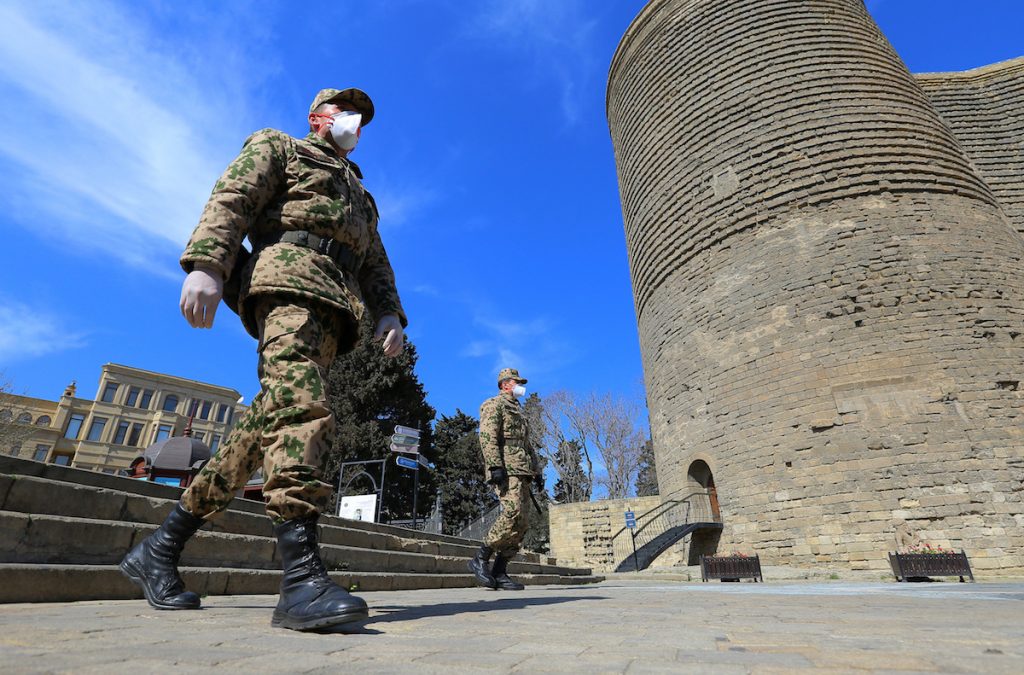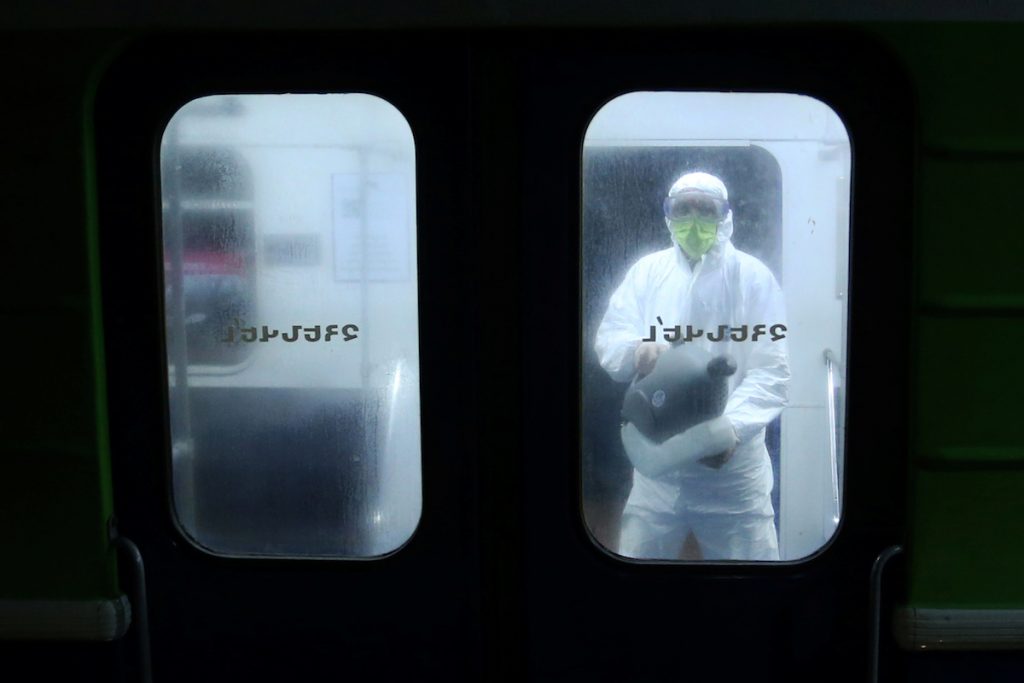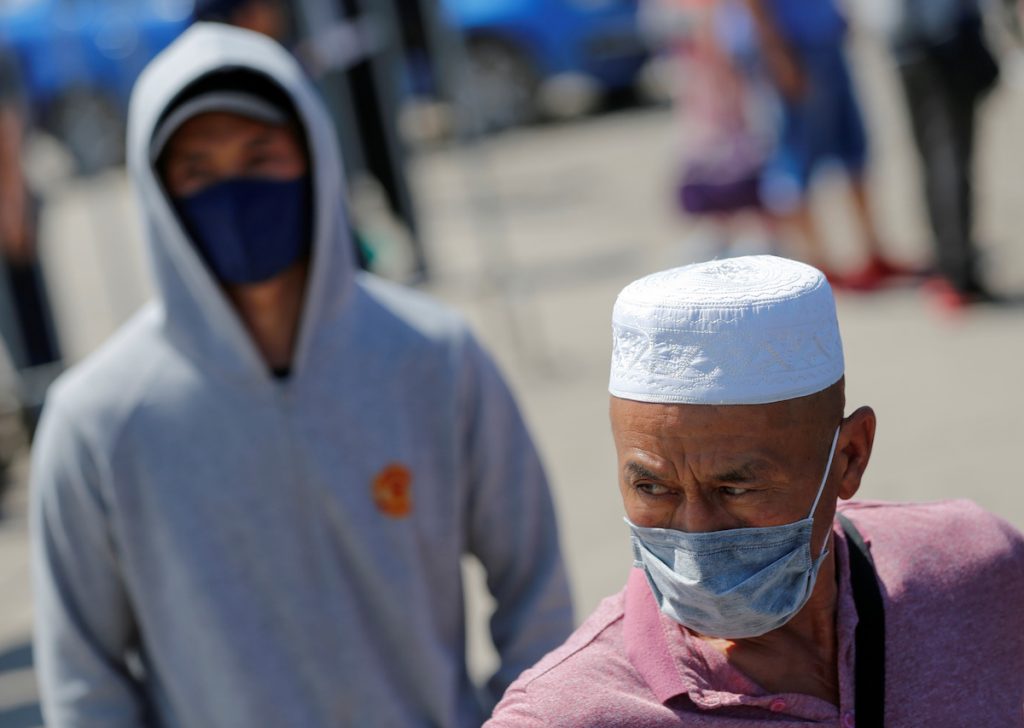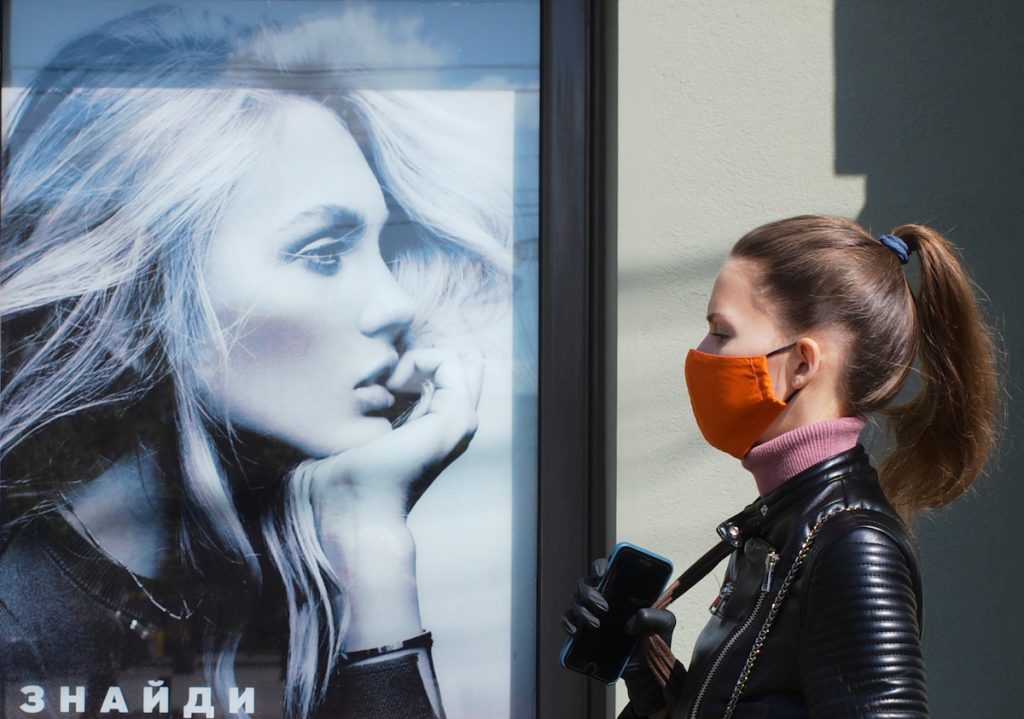“Stay at home, not at the cemetery” – how countries are coping with new coronavirus outbreaks
independent newsrooms from Azerbaijan, Armenia, Ukraine, Moldova, and Kazakhstan talk about new outbreaks of coronavirus that have appeared after the partial roll back of quarantine restrictions.
Azerbaijan: to the clinic and to the funeral
“Recent relief for the economy has shown that citizens do not comply with the quarantine regime and security requirements, as a result, there is an increase in the number of infected people,” said Azerbaijani Prime Minister Ali Asadov, addressing citizens on June 4.
He announced new harsh rules: residents of large cities of the country are forbidden to leave their homes on the weekends; an exception is made only for those attending funerals, and those who urgently need to see a doctor.
- Armenia: three women saving their businesses from coronavirus
- Masks, barriers, high prices: post-corona tourism in Georgia
- Law and coronavirus: the legality of Azerbaijan’s quarantine
Azerbaijan recently broke its own record of daily new cases: 325.
The second wave of infections began in the country in early May and has been increasing ever since. Despite the fact that COVID-19 has been infecting people in the hundreds, the life of large cities has continued as before: before the introduction of these new restrictions, all cafes, restaurants, shops, institutions and organizations managed to resume work here and even a new shopping center was opened.
Cinema, entertainment centers and gyms remain closed. Local residents tend to neglect the requirement to wear masks (although a fine of 50 manat [about $30] has been instituted).

Masks must be worn in almost all enclosed spaces, in vehicles, at bus stops and in open spaces where it is difficult to maintain distance (for example, in lines in front of ATMs or shops).
Many people relate to this requirement formally, pulling on a face mask just below the chin, or generally keeping it in their pocket, using it for its intended purpose only when they notice a policeman nearby.
Armenia: “We have come to the brink”
The non-observance of social distancing measures and a failure to use face masks has also been reported in Armenia.
“The government does not control the situation, the hospitals are crowded. The prime minister, in a panic, several times a day goes live to urge people to wear masks. But Facebook and television appeals do not work. All the same, Yerevan residents are strolling outside, not observing social distancing measures and not wearing masks.
Armenian journalist Mark Grigorian writes on his Facebook page that people have come up with a number of reasons not to wear masks, including ‘feeling hot’, ‘lacking oxygen’, and supposing ‘masks are not necessary at all and many other ‘good’ reasons.’
The Prime Minister of Armenia – who has himself become infected with coronavirus and is self-isolating together with his household – does indeed regularly appeal to citizens, calling them to account.

“A situation has arisen when our medical institutions are no longer able to accept new patients in need of treatment,” Prime Minister Nikol Pashinyan wrote on Facebook on June 4. “We have come to the brink when the health care system is unable to cope with this difficulty. There are at least 20 thousand asymptomatic patients in the country, and maybe more who simply may not know they are infected.”
The population of Armenia is less than three million people, so these figures cannot but be alarming.
PM Pashinyan has begun to publish photos with violations of social distancing, and in a few days has gathered a whole collection.
Despite the continued increase in infection, the country’s authorities have not yet renewed the quarantine regime and a few days ago shared plans to open air borders from mid-July.
Kazakhstan: “Quarantine is not a solution”
Kazakhstan officially recognized that a second wave of infections had begun in the country since mid-May. But a return to full quarantine is not being considered here either.
From May 11, when the state of emergency was rolled back, to June 5 in Kazakhstan, the number of cases of coronavirus increased by 140 percent (+7,186 patients).
Kazakhstan now has more cases than a number of countries, including, for example, South Korea, where the coronavirus was raging several months ago.

In the last weeks of May, the growth of new cases in Kazakhstan accelerated to four to five percent daily, and for several consecutive days the country updated a record quantitative increase in new cases.
The last ‘record’ was beat on May 30 – during this day 476 cases were detected in the country.
In assessing the effectiveness of quarantine, Kazakh authorities contradict themselves. In March, they called quarantine “the only solution”, in early April they said that it had an effect.
However, in May it was noted that the new quarantine would be a blow to the economy and they would not want to introduce it, and in June Minister of Health Yelzhan Birtanov even noted that the introduction of strict quarantine is “not the solution”.
Moldova: hospital places last for five days
It is impossible to close the economy and fine everyone, citizens must rely on their own responsibility – this phrase can summarizes the statements of the Prime Minister of Moldova, Ion Chicu.
“There will be enough hospital beds for another five days. Stay at home, not at the cemetery,” the Moldovan prime minister warned citizens who planned to visit the cemeteries over the holiday next weekend.
Chisinau Mayor Ion Ceban made the same warning:
“At the risk of incurring criticism from many of you, I urge everyone not to go to the cemeteries. I think you can do it. Due to the high risk of coronavirus infection, public transport will not run on June 6, 7 and 8,” Ceban wrote on his Facebook page.

Ukraine: cafes still closed
The authorities of Kyiv planned to roll back quarantine measures from June 5, but backtracked after a spike in cases. The opening of cafes, restaurants and pools has been postponed canceled.
“Now one of the indicators – in terms of the number of patients per 100,000 of the population – exceeds the norm. Today it is 14.9 people [ed. the limit at which to weaken quarantine was set formerly at 12]”, said Kyiv mayor Vitaliy Klitschko.
From May 22 to June 22 in Ukraine there is a so-called “adaptive” (local) quarantine. This means that in the event of an exacerbation of the epidemiological situation in certain regions, restrictive measures will be strengthened there, and not throughout the country.
In recent days, a surge in incidence has been noted in Ukraine – for example, over the past day 553 new cases have been added.


















